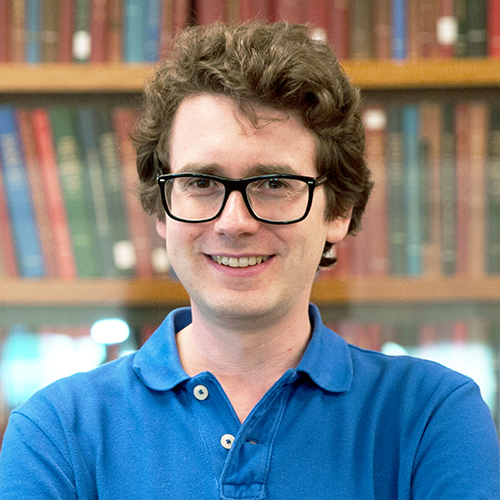
In a quantum future, which starship destroys the other?
04.10.2019 12:00
Branco Weiss Fellow Igor Pikovski has co-authored a study led by Stevens Institute of Technology, University of Vienna and University of Queensland that shows that in quantum mechanics not only particles can exist in a state of superposition (i. e. being in two or more places or states at once) – so can time itself. The work, published in Nature Communications, is among the first to reveal the quantum properties of time, whereby the flow of time doesn’t observe a straight arrow forward, but one where cause and effect can co-exist both in the forward and backward direction.
Pikovski and colleagues conducted a Gedanken experiment, that goes like this: A pair of starships are asked to fire at each other at a specified time and dodge the fire at another time, whereby each ship knows the exact time when to fire and when to dodge. If either ship fires too early, one will destroy the other, establishing an unmistakable time order between the firing events. That is, starship A fires before starship B, and starship A survives and starship B is destroyed. However, if a powerful agent could place a sufficiently massive object, say a planet, closer to one starship it would slow down its flow of time, according to general relativity. As a result, the starship would be in line of fire of the attack and be destroyed.
But when placing the planet in a state of quantum superposition near one starship or the other, both can be destroyed or survive at the same time. “The sequence of events can become quantum mechanical,” comments Pikovski. “We looked at quantum temporal order where there is no distinction between one event causing the other or vice versa. So, at the same time, A can cause B and B can cause A, in a quantum loop that blurs the lines of cause and effect.”
“Moving planets around is hard,” said Pikovski. “But imagining it helped us examine a quantum aspect of time that was previously unknown.” In the upcoming era of quantum computers, the work holds particular promise: quantum computers that exploit the quantum order of performing operations might beat devices that operate using only fixed sequences.
Read the news on Fox News
Read the News on Science Daily
Read the paper in Nature Communications
